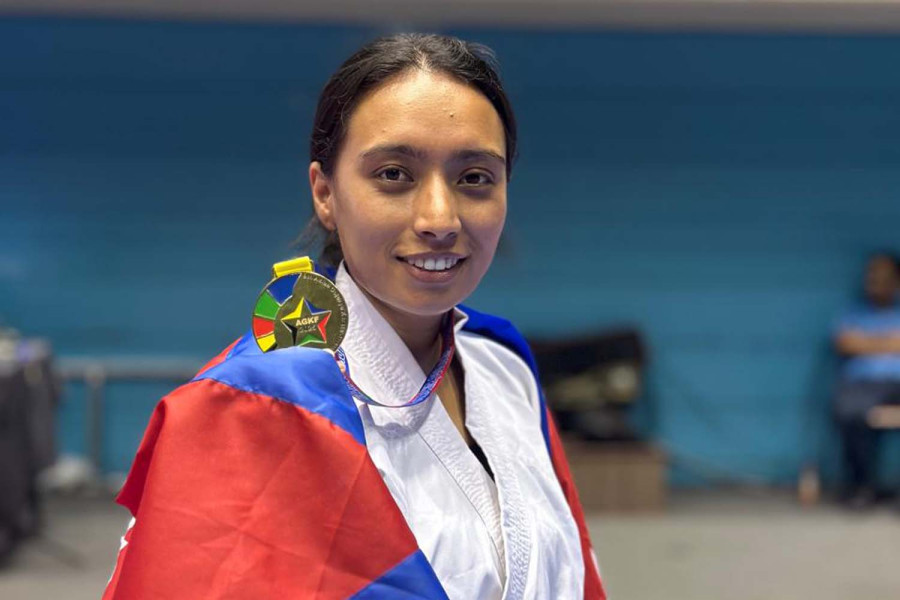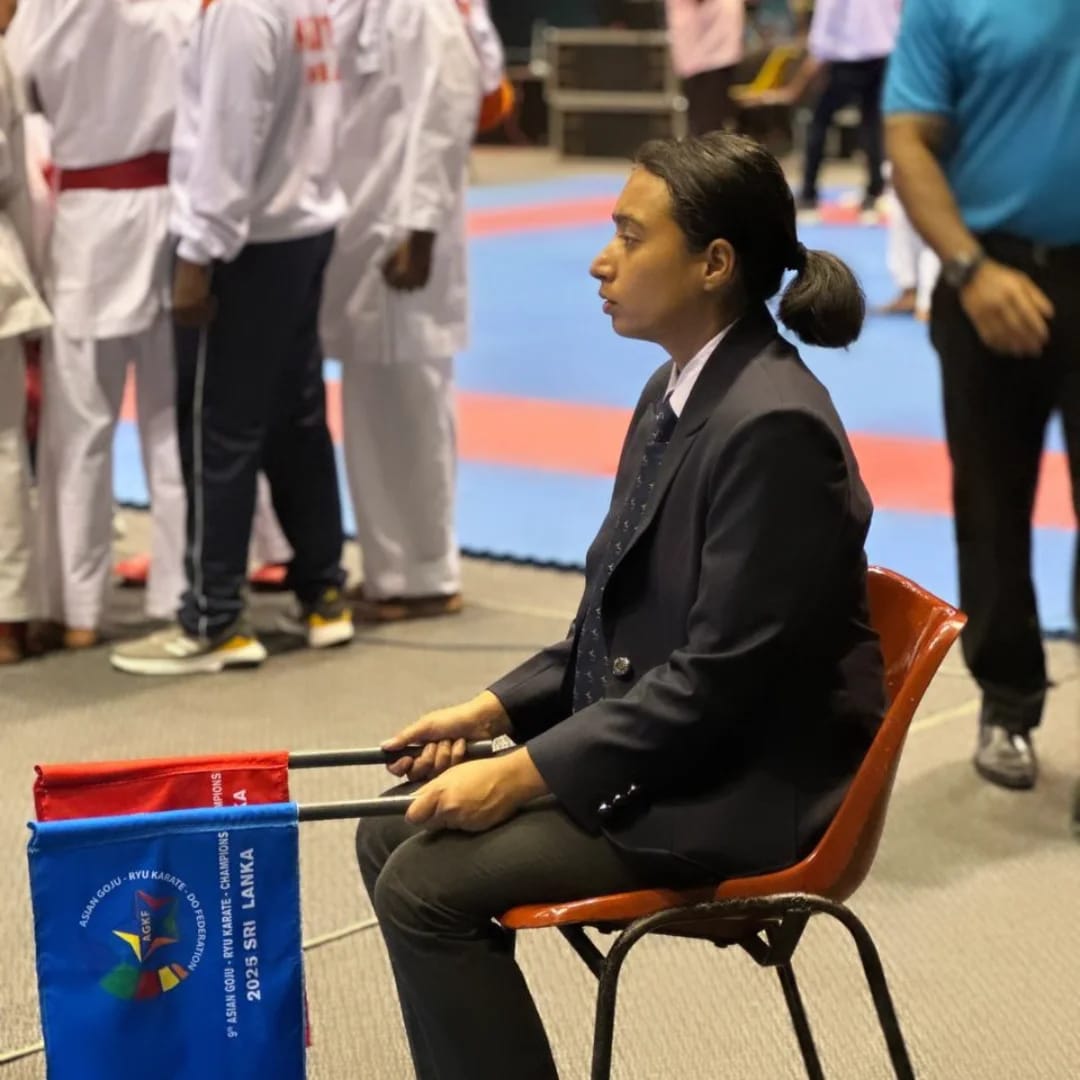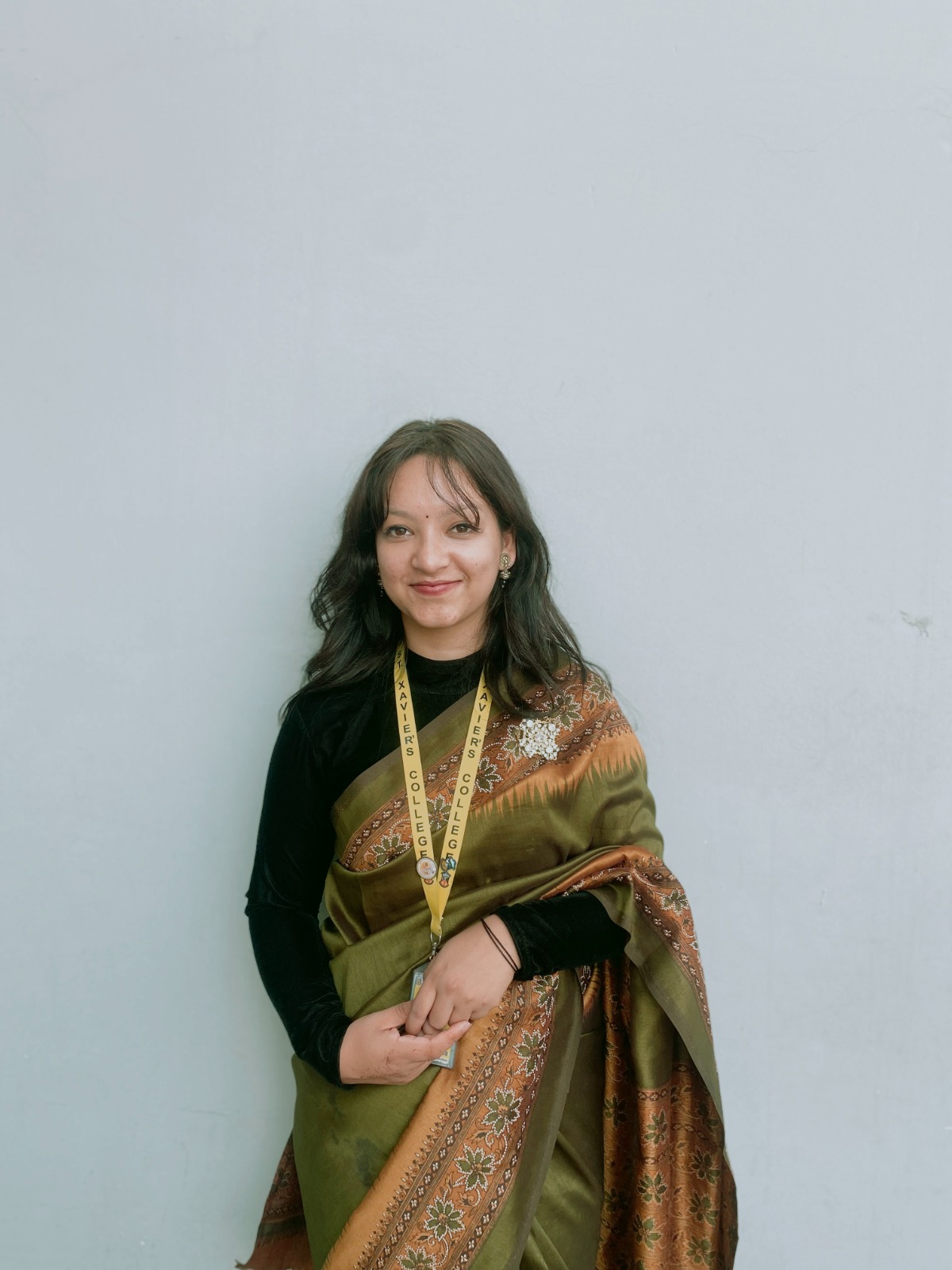Culture & Lifestyle
I wasn’t allowed to play sports, so I went on a hunger strike
From early morning hikes to practising at training grounds and juggling law school with international competitions, Karina Puri shows how passionate persistence can help forge one’s own path.
Aarya Chand
In Jyamire, Sindhupalchowk, where playgrounds were scarce and girls playing football drew stares, Karina Puri used to walk through a forest with a torchlight. She started her hour-long journey to Melamchi Bazaar while it was still dark, facing cold mornings and the quiet of the woods. This routine marked the start of her life in sports—a practice motivated more by necessity than ambition at the time.
In Puri’s village, girls rarely played sports. She recalls being among the few who went onto the football field, usually wearing her favourite jersey with the number 10. “I love Lionel Messi,” she says, “but only the boys’ team was sent during inter-school tournaments. I didn’t get a chance to compete.”
That gap led her to karate, the only structured training in the village. She was the only girl there. “I had to practice with boys because no girls were available,” she says.
After completing class 10 around 2016, she started competing in karate at both national and international levels. It was a challenging journey. Her parents were initially opposed to her involvement in sports. “They would ask why I needed to play at all,” she recalls. “I had to go on a hunger strike before they agreed to let me compete professionally.”
Puri recalls that her first guru had to leave the village, leaving her without a coach. Resources were scarce. There were no proper grounds.
At 16, Puri played her first international game at the 6th Asian Goju Ryu Championship in Indonesia, competing in the 50kg category and won a gold medal. “I didn’t even have a helmet. Team India helped me by giving one,” she recalls.

For her, the missing infrastructure underscores the broader issues in Nepal’s approach to sports. “When we go abroad for competitions, other nations provide their own doctors, but we don’t,” she explains. “Players must cover their expenses unless they win. If we lose, we also lose the money invested.”
Despite the hurdles, Puri began making her presence in international tournaments. That gold medal in Indonesia was her first recognition outside Nepal.
Years later, in 2025, she earned another gold at the 9th Asian Goju Ryu Karate Championship, this time in the 55kg category. In between, she also secured a bronze medal at the International Karate Championship in Bangladesh on November 30, 2018, followed by a silver medal at the 5th International Open Karate Championship in Malaysia on December 2, 2018.
Her role has not been limited to being an athlete. In 2025, she also began refereeing, judging matches at the Asian Goju Ryu Karate Federation. “Being a referee is a different pressure altogether. A second’s mistake can change the game, and someone’s career is in your hands.”
Parallel to her sports journey, Puri also pursued law. She completed her Bachelor of Arts and Bachelor of Laws (BALLB) degree from National Law College, Tribhuvan University.
Balancing the two came with sacrifices. On the day of her law entrance exam, the World Goju Karate Championship was also being held in Malaysia. She chose to sit for the exam. “Had I skipped the exam, I’d be left behind academically,” she says. “So I gave up the championship.”
Her training schedules stretched from early mornings to late evenings, leaving her exhausted in classrooms. She regularly missed her first period and often dozed off in lectures due to fatigue.
The struggle was not just limited to time management. Living alone in Kathmandu, she often had to manage her own cooking and diet with limited money. “I left home weighing around 60kg, but during intense training, my weight dropped to 45kg because I couldn’t maintain a proper diet,” she recalls. “There were days I felt overwhelmed and thought of giving up, but then I remembered the hard work my father put in to send me here. That thought kept me going.”
Although karate has been her primary sport, Puri has steadily diversified. She played football in her younger years and has more recently stepped into cricket. Her interest sparked when her college organised a tournament, and she unexpectedly helped her team win.
“I realised cricket had science in it—physics and chemistry. I liked that,” she says. Today, she trains at the Great Himalayan Cricket Academy and hopes to play at the national level. For her, cricket has been an opportunity to experience teamwork, something individual sports like karate don’t often provide.
Since 2022, Puri has also been working as a national-level coach of Goju Ryu Karate. For her, coaching has been about imparting lessons that extend beyond championships. “Karate is not just for winning medals. It’s for self-defence and for life. Every kata teaches a life lesson,” she explains.
Her involvement has also extended into para sports. Through an online course with the International Testing Agency, she trained in anti-doping and para sports classification. “I believe sports should be inclusive—regardless of age, gender, or ability,” she says.
Not just that but her sports career has influenced her social work too. Puri has been active in advocacy roles, including as a central representative member in the Nepali Congress and as a member of the Nepal Student Union.
“I had seen how women in my village were subjected to harsh judgment, endured mistreatment from their spouses and faced divorce,” she says. “That pushed me to speak out, to think of law as a career, and to join these platforms.” Her advocacy centres around women’s empowerment and gender equality, with a focus on representation in sports.
For Puri, success is not about the medals she has won but the opportunities to pass knowledge on to others. “For me, being able to teach self-defence to young girls through karate—that’s what satisfies me. That’s success,” she says.
When asked what advice she would give those just starting, Puri pointed to patience and persistence as the core of her journey. “In karate, we’d practice the same kick for a hundred days. Initially, it may seem routine and directionless, but over time, it yields results. This same lesson holds true for life—you need to persist until your efforts are rewarded,” she said.
Her story reflects not just the making of an athlete, but the determination to create space for herself and others in a system that offers little support. “Only those truly passionate can keep going in Nepali sports,” she says. “For me, that passion is enough to continue.”




 9.89°C Kathmandu
9.89°C Kathmandu

.jpg&w=200&height=120)













